From The Dust
Banned
You'd thin Street Fighter would be more popular than it is in Japan. Wonder why it isn'tfarnham said:that game didnt even break 500k on much more popular platforms
You'd thin Street Fighter would be more popular than it is in Japan. Wonder why it isn'tfarnham said:that game didnt even break 500k on much more popular platforms
Hello Computer Science 102Stumpokapow said:Would we argue that these are the same puzzles?
Both involve horizontal translations of (subsets of) LIFO stacks with constraint on stack pushing rules. Same puzzle confirmed.
Graphics Horse said:The sliding puzzle involving moving a specific piece past differently shaped pieces dates back to the early 1900s
http://en.wikipedia.org/wiki/Klotski
fighting games in general dont sell much. the only million seller in that genre this gen and last gen is smash bros (unless Tekken Tag Tournament sold 1 million)From The Dust said:You'd thin Street Fighter would be more popular than it is in Japan. Wonder why it isn't
Momo said:Hello Computer Science 102
Yeah like how the Wii was perfect for it tooGahiggidy said:btw, I hope they are considering a Luigi's Mansion sequel for the 3DS. The dollhouse style of the game could look gorgeous in 3D. *Picturing the specters floating in and out of the screen.* Though, lack of c-stick could make mapping the controls tricky.
Wow. I always thought fighting games did much better in japanfarnham said:fighting games in general dont sell much. the only million seller in that genre this gen and last gen is smash bros (unless Tekken Tag Tournament sold 1 million)
RurouniZel said:I'm not surprised there isn't a huge attach rate yet, considering the system itself is more expensive than any portable Nintendo's released in the past. I'll wait a couple of months before I make any judgments based on this information.
Block sliding puzzles are essentially the same as the require the solver to use exactly the same skills - ability to predict the situation several steps ahead, imagine what the situation will look like if you push this or that block, if it's going to put you in a better position etc. What is the "impact of local minima/maxima" even supposed to mean in this case?Stumpokapow said:Is this some sort of "all puzzles are the same puzzle" argument?
Those two puzzles have virtually nothing in common except insofar as they both involve lateral translation of space-constrained objects.
The type and shape of the objects, the shape of the board, the degree of space constraint, the final objective, the scope of the objective--in the sliding tile puzzle to achieve a full board configuration in the Layton puzzle to move one tile to an end tile location, the techniques used to address the board, the impact of local minima/maxima... all of these characteristics are different.
Unless you're trying to make some abstract point about computational complexity, you're not right about this.
What are the rules of the second puzzle? Or at least state the objective.Stumpokapow said:Would we argue that these are the same puzzles?
Images
Both involve horizontal translations of (subsets of) LIFO stacks with constraint on stack pushing rules. Same puzzle confirmed.
With enough arbitrary abstraction, you can equate everything. This doesn't make you any less wrong.szaromir said:Block sliding puzzles are essentially the same as the require the solver to use exactly the same skills - ability to predict the situation several steps ahead, imagine what the situation will look like if you push this or that block, if it's going to put you in a better position etc. What is the "impact of local minima/maxima" even supposed to mean in this case?
I see different types of tin cans, so I guess you have to stack them according to their type with some kind of constraint.szaromir said:What are the rules of the second puzzle? Or at least state the objective.
well.. hardcore gamers scuffed at Luigis Mansion and it just did not do the numbers a launch game should do. It is a great game but with sales like that i really cant blame em.Teetris said:Yeah like how the Wii was perfect for it too
FU nintendo FU
Well, I wouldn't be surprised if it was more successful in arcades which are much more common in Japan. I don't have any info to back this up though.From The Dust said:You'd thin Street Fighter would be more popular than it is in Japan. Wonder why it isn't
szaromir said:Block sliding puzzles are essentially the same as the require the solver to use exactly the same skills - ability to predict the situation several steps ahead, imagine what the situation will look like if you push this or that block, if it's going to put you in a better position etc. What is the "impact of local minima/maxima" even supposed to mean in this case?
What are the rules of the second puzzle? Or at least state the objective.

Cyborg said:Eyes bleeding........stop playing after 30 mins.
Comparing multiplayer game to a static puzzle is a bit out of place. I consider two puzzles different not only when they are of different levels of complexity, but also have a different "catch", ie. require the solver to use different tricks or think differently in order to achieve the objective. The sliding puzzles are universally the same in that regard.Stumpokapow said:The shared characteristics you just mentioned are common to everything. Is Chess the same as a sliding block puzzle? I mean, it doesn't feature blocking, move constraint is different for different pieces, and it's two player, but it requires you to "predict the situation several steps ahead" and "imagine what the situation will look like if you [move this or that piece]" and know whether "it's going to put you in a better position".
In context, it means a situation where you need to "go backward to go forward". Sliding tile puzzles have virtually no cases of this until the last few tiles, whereas it's an instrumental part of the Layton puzzle linked.
They have pretty much the same solution algorithm.
In other words, both puzzles feature moving (subsets of) LIFO stacks horizontally into columns, although they have totally different constraints on moving, objectives, and themes.
Are they the same puzzle?
There isn't enough diversity in the sliding puzzles to consider them a genre, just different complexity. For me a genre would be geometry puzzles - which require you to know Euclidan axioms to show something (sadly, those in Layton are insultingly simple) or language puzzles, that require you to think about meaning of different words etc.I think it's fair to distinguish between 'same puzzle' and 'same *genre* of puzzle'.
No.Jonnyram said:Is Famitsu counting the three Nintendogs SKUs separately or something? Can't imagine Layton outselling the 'dogs. Also, hope Ridge is not that far behind, though the series seems to be losing a lot of fans recently.
Which game? Winning Eleven?Cyborg said:Eyes bleeding........stop playing after 30 mins.
So who was right?Chris1964 said:
MeRatrat said:So who was right?
szaromir said:Comparing multiplayer game to a static puzzle is a bit out of place. I consider two puzzles different not only when they are of different levels of complexity, but also have a different "catch", ie. require the solver to use different tricks or think differently in order to achieve the objective. The sliding puzzles are universally the same in that regard.
They have pretty much the same solution algorithm.
There isn't enough diversity in the sliding puzzles to consider them a genre, just different complexity. For me a genre would be geometry puzzles - which require you to know Euclidan axioms to show something (sadly, those in Layton are insultingly simple) or language puzzles, that require you to think about meaning of different words etc.
Do we have tie-ratio? It looks below 1._dementia said:Excellent tie ratio.
Jonnyram said:Is Famitsu counting the three Nintendogs SKUs separately or something? Can't imagine Layton outselling the 'dogs. Also, hope Ridge is not that far behind, though the series seems to be losing a lot of fans recently.
He could be referring to Layton's tie ratio, not 3DS.Chris1964 said:Do we have tie-ratio? It looks below 1.
From The Dust said:You'd thin Street Fighter would be more popular than it is in Japan. Wonder why it isn't
Layton tie-ratio isn't that excellent. Next week will tell.Gahiggidy said:He could be referring to Layton's tie ratio, not 3DS.
pro modedragonfart28 said:It's because you don't choose character actions from a menu.
From The Dust said:You'd thin Street Fighter would be more popular than it is in Japan. Wonder why it isn't

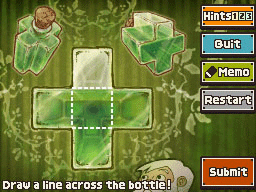
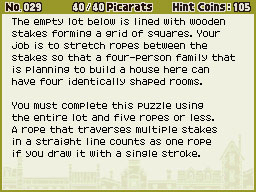
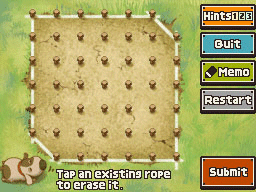
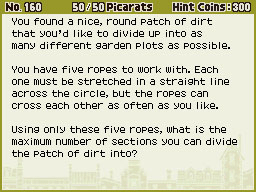
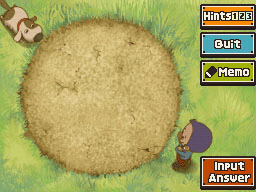
It is in absolute numbers but it was 4 vs. 2 days with Layton 1.duckroll said:Lowest Layton first week opening ever, and it's still #1 at launch. Says a lot.
Chris1964 said:It is in absolute numbers but it was 4 vs. 2 days with Layton 1.
dragonfart28 said:It's because you don't choose character actions from a menu.
Stumpokapow said:It's also wrong, Layton and the Curious Village's opening week numbers were lower than this at 119k. Moreover, Layton 5 would have to have an 85% attach ratio--that's a software attach rate as high as the original DS's ENTIRE LAUNCH LINEUP COMBINED week one--to beat Layton 2, Layton 3, or Layton 4's opening week.
Spiegel said:119k is lower than 117k?
huh?duckroll said:Layton is a series in ongoing decline, but there are still a bunch of very hardcore fans, unaffected by platform shifts. At the same time, it also indicates that there is no stronger Japanese brand at the launch of the system.
Stumpokapow said:It's alsowrongnot really right, Layton and the Curious Village's opening week numbers werelower than thisstatistically the same as this one at 119k. Moreover, Layton 5 would have to have an 85% attach ratio--that's a software attach rate as high as the original DS's ENTIRE LAUNCH LINEUP COMBINED week one--to beat Layton 2, Layton 3, or Layton 4's opening week.
